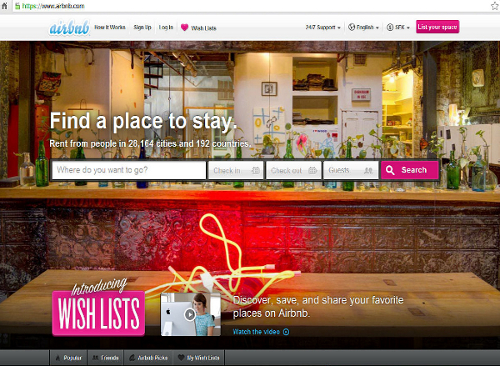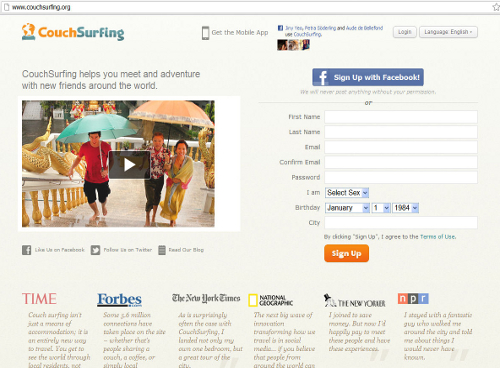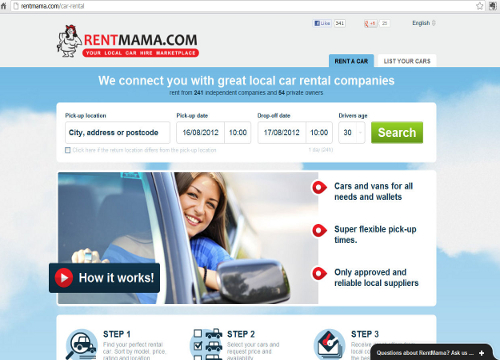The rise of Internet marketplaces: threat or opportunity?
Aided by a mixture of technology and hard times, Internet-based marketplaces are thriving in the travel and leisure business. Companies like Airbnb help travellers find places to stay while others like Gidsy help people find new experiences. But do these sites take business from traditional companies or create new markets. It’s complicated, reports Andrew Hennigan.
One thing that the Internet does extremely well is bring buyers and sellers together. But the market was long dominated by websites that are essentially business-to-consumer, selling the products of established operators to end customers. This dominance was challenged by the emergence of marketplace websites that offer buyers and sellers a place to meet and do business.
Some of these have become very successful. Airbnb, for example, allows anyone to offer accommodation for rent to anyone else and in just five years has grown to rival the largest hotel chains, booking more than 10 million guest nights (Airbnb: Bigged Up or Big Stuff?, Eye for Travel April 24, 2012). More recently Airbnb has been joined by a new generation of startups that threaten to disrupt other areas of the travel and tourism business, though it is not always clear if these generate new business or simply take away market share from more traditional rivals.

Creating new opportunities
One company that leans more towards the new business side is Gidsy, a startup described as a ‘marketplace for experiences’ (The authentic experience: not just for the true adventurer, Eye for Travel, May 3, 2012). With Gidsy anyone can create an activity, posting a description, price, dates and other information. Customers browse through the postings, choose an activity they like, pay with credit card or Paypal, attend the activity then post their comments.
Gidsy is free for the activity organiser; the company takes a 10% service charge from each payment. Customers pay Gidsy before the activity takes place and Gidsy releases the payments to the organiser after the activity has taken place, so nobody needs to worry about not being paid or being cheated. Some of the activities are traditional tour guide activities while others are created only because Gidsy makes it possible. So you can go on a walking tour of Amsterdam’s red-light district guided by a former policeman, eat dinner at the home of an expert chef or fly around Berlin in a small aircraft.
“We don’t have any real online competition”, says Gidsy founder and CEO Edial Dekker, “and our competition lies more in the traditional leisure and travel industry”. In some cases this competition is direct, like when you use Gidsy to find a guide, but more often it is indirect. Traditional travel companies probably don’t offer many of the experiences you can find on Gidsy, but by choosing a Gidsy activity you are not choosing a rival offer from other companies. “Our goal is to become the first place where people go if they are looking for things to do.”
One thing that makes Gidsy appealing is the way it empowers organisers who perhaps would only enter the business because this option exists. Some guides might use Gidsy in place of or in addition to traditional channels, but others only enter the leisure business because Gidsy makes it easy. “Tour guides working for operators lose 20-30% of the booking price and don’t receive any recognition, reviews or customer information,” says Dekker. “But there are also people who are able to do things they could never do before – like the pilot who organises tours over Berlin in his Cessna. Using Gidsy he can support his hobby and get to know interesting people.”
Getting to know people is a key motivation driving users of Couchsurfing, a company that allows people to offer homes, rooms and even just a sofa to someone else looking for a place to stay (CouchSurfing invites members to feature in its videos, EyeforTravel, Sept 28 2011). Where Couchsurfing is different is that it is free. “Our members host each other free of charge, hoping to learn, grow and form connections with people they wouldn’t normally have the chance to meet”, says Couchsurfing’s Heather O’Brien.

Couchsurfing is hugely popular, connecting more than 4.5 million members worldwide. Sometimes it takes business from traditional hospitality companies – especially in times of recession when budgets are tight – but at the same time it also creates new travel opportunities because it enables people with low budgets to go to places they might otherwise not be able to afford. Though hosts do not get paid Couchsurfing does have plans to monetise the site. “We offer an optional identity verification option for a fee where members can verify their real names and addresses as a safety feature”, says O’Brien, “and we are currently exploring alternative revenue streams”.
But there is probably a limit to the amount of business that Couchsurfing can take from paid accommodation, not because people don’t want to get things free but because property owners sometimes prefer to be paid, or simply need the money.
A helping hand
Other startups are more focused on helping traditional businesses to be more successful. The UK-based car rental marketplace RentMama makes it easy for consumers to find smaller, local rental companies that they might never have found otherwise. What sets apart RentMama from traditional companies is that you get exactly the car you ordered – something that will appeal to many renters – and low prices.
The idea came to co-founder and chief executive Gunars Grundstoks on a visit to Paris. “In Paris we wanted to rent a car and it was very expensive,” explains Grundstoks. “After spending a long time with Google I found local companies that were much cheaper and recognised that finding these companies was a huge problem.” Back in his hometown of Riga he made a prototype site to test the idea then started RentMama.com in the UK early in 2012 with funding from the Ignite100 startup accelerator programme. RentMama drives revenues for small, local rental companies but it also creates some additional business from people who could not afford a car from a major rental companies but don’t have time to search for local companies. RentMama takes a 10% commission on each rental and is exploring other possible monetisation strategies including links to insurance and other extras.

Even more focused on enabling existing business is a new startup called Dealgecco, a B2B marketplace catering particularly for the deal and flash sales industry. Dealgecco makes it possible to match overcapacity on one side and demand on the other, helping travel operators even out market fluctuations. “The key factor that sets Dealgecco apart from other startups in this space is that we have no consumer-facing operations,” says Dealgecco’s Anna Rojahn. “Instead we focus on providing value to our partners, helping them to achieve the best possible outcome.”
Founded near the end of 2011, Dealgecco takes a small commission from both parties in a deal and operates in more than 60 countries. “At Dealgecco we are not a B2C deal aggregator but a marketplace for B2B business,” says Rojahn. “We consider travel agencies and local sourcing companies to be partners rather than competitors.” Dealgecco creates additional business for its partners, through sales of otherwise unused capacity, but this comes from existing business. “Marketplaces can open up a wide range of opportunities for the travel industry”, adds Rojahn, “as they give small, individual players easy access to new international markets.”
Ultimately this is one of the answers to the question: Do marketplaces create new business? It’s complicated because there are so many different types of marketplace and so many different ways to look at the results, but for small businesses the advantages are very clear and even larger companies can benefit.

